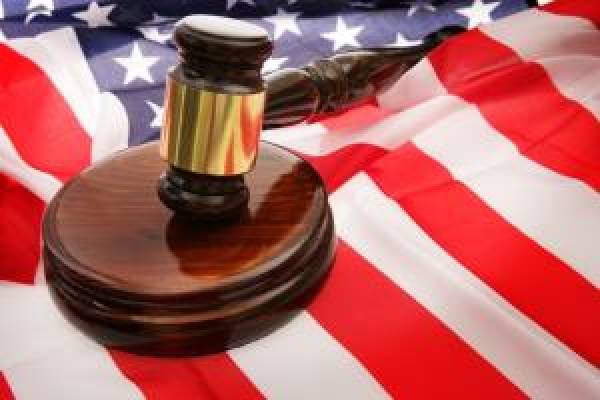Gambling Domain Names 'Designed' to Be Accessed in Kentucky, Judge Rules

The Internet is "still not above the law," at least in Kentucky, Franklin County Judge Thomas Wingate ruled, denying several motions to dismiss the state's motion to seize 141 gambling Web site domains. The state has said it wants to force the domain owners to apply geographic blocking technology to keep out residents of the state (WID Oct 7 p2). The "doomsday argument" of those who told the court its ruling will "create havoc" fails, "until expressed guidelines from state and federal legislative bodies say otherwise," he said.
Wingate backed the state's view of domain names as property that can be seized under civil proceedings, and as unregulated "gambling devices" whose function makes them illegal in Kentucky. Domain owners, not just their lawyers, must show up in court for a Nov. 17 forfeiture hearing to demonstrate their sites can't be accessed in the state, under the order made available late Thursday.
Forfeiture of "gambling devices" isn't intended solely as a response to criminal conviction under Kentucky law, Wingate said, rejecting a narrow reading by defendants and friend of the court filers. "It would be absurd for our General Assembly to emphasize the pernicious nature of gambling ... yet restrict the remedial measures made available to its law enforcement agents," he said. Domain names clearly have value independent
of their "technical function as Internet addresses," as evidenced by the U.S. Treasury's public auction of the seized DoctorTalk.com for $526,000, Wingate said. "By virtue of its scarcity and desirability," a domain name has value, and can be seized as property, he said.
Just as doing business in a state counts as "presence" under a "moderated" view of jurisdictional power by the Supreme Court, availability of a Web site in a state is enough to establish the concept of situs, Wingate said. He rejected the defendants' citation of the Anticybersquatting Consumer Protection Act, which limits jurisdiction to the registrar's district, as irrelevant to a gambling case. The section of federal law after the registrar-
location provision makes reference to "any other jurisdiction that otherwise exists," implying Congress had a broader view of jurisdictional power, he said.
The technical underpinning of some online gambling operations held relevance for Wingate. Vegasvilla.com, one of the defendants, invites players to download "microgaming front-end software" that allows their computers to run games and that links their financial accounts to the site, he said. Technical workings aside, all defendants' domain names allow gambling operations that are "continuous and systematic" in the state. The domains "transport the virtual premises of an Internet gambling casino inside the houses of Kentucky residents," and they "perform a critical role in creating and maintaining connection by way of the various interfaces to transact a game or play," Wingate said, citing screenshots provided by the state. Noting a protest from GoldenPalace.com, Wingate said domain owners who can show at the Nov. 17 hearing their sites contain only "information," such as advertisements for other sites, won't have their names seized.
Challengers' "exhaustive" analysis of Kentucky's definition of "gambling devices" isn't persuasive, Wingate said, pointing to the "spirit" of the law. Number slips aren't "mechanical," yet the Kentucky Supreme Court found them to be devices under the statute, he said. The gambling domain names "contain the vice at which the statute is directed," and are "designed" to attract players and give access to Kentucky players in particular, he added. Wingate pointed to gambling sites that state investigators said blocked their attempts to play, such as 32redpoker.com. Sites must use geographic filtering or blocking software to prevent access where it's illegal, he said.
Wingate's initial September order for the domains to be transferred to Kentucky, without notice to their owners first, didn't violate due process, Wingate said. The seizure was against property, not people, it was for "an important government or general public interest," and there was a "special need for very prompt action," he said: The domain names "could be removed from the reach of the Commonwealth, if advance
warning of confiscation is given."
The Interactive Media Entertainment and Gaming Association was set to file a challenge at the Kentucky Court of Appeals after our Friday deadline, Chairman Joe Brennan told us. The group was to work over the weekend on another challenge in federal court, though it hasn't decided which district, he added. Wingate's order denied motions by the association and the Interactive Gaming Council to intervene in the case under "associational standing," saying the groups' members must make their own claims against seizure of their domains. As with other groups, they can continue to file briefs as friends of the court, though. Network Solutions, whose lawyer "admitted in open court" it was the registrar for some of the domain names, nonetheless will be treated the same, Wingate said. The law firms representing the so-called Group of 7 and Group of 2 domain-name owners must divulge their clients' identities, not just their domains, to the court, Wingate ruled.
Friend-of-the-court filers predicted the havoc that Wingate dismissed. "The court has set a dangerous precedent for censorship of the Internet," said John Pappas, executive director of the Poker Players Alliance. Wingate also ruled that Internet poker, even as a "game of skill," includes chance and is therefore prohibited under state law. Geographic blocking "is infeasible for individual domain names which could be subject to different laws and regulation in thousands of jurisdictions worldwide," said Jeremiah Johnston, president of the Internet Commerce Association, which represents domain owners. We couldn't reach lawyers for the Group of 7 domains. Lawyers for GoldenCasino.com and GoldenPalace.com, the Group of 2, declined to comment.
Wingate's ruling could "fuel the fire" in other states to demand Web sites block access to their residents, seeing geographic blocking as a "black and white solution," Johnston later told us. Oddly, the sides were flipped at a House Financial Services Committee hearing last year, in which gambling supporters praised blocking technology and opponents called it unreliable (WID June 11/07 p2). Johnston said his group has never supported blocking. "We're certainly open to the discussion of ways to prevent illegal activity," he said.
"We just don't want the unintended consequences."
The ICA is more worried that the "expectation" of jurisdiction will be undermined by Wingate's ruling, Johnston said. A German business could be forced to submit to a laundry list of demands from jurisdictions around the world to "customize" its Web site for local access, chilling national and international commerce, he said. Until now, Utah had shown the most interest in mandating local laws for Internet business practices, but it had been largely rebuked in court, Johnston said. "The Internet is the classic example of interstate commerce." -- Greg Piper
----
By Greg Piper, Washington Internet













